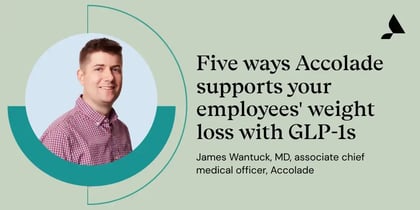HR professionals know that healthcare costs continue to rise faster than inflation. Their chief financial officers (CFO) know it too. If you believe that personalized advocacy can help save costs, how do you convince your CFO?
Here are five questions to help you think like a CFO. If you can understand and respond to your CFO’s concerns, it will be easier to get them to sign off on a healthcare advocacy strategy – download a supplemental one-sheet here for easy reference!
How does this impact the company’s future?
Every CFO wants to ensure their organization meets its goals. This means enhancing revenue streams and cutting expenses. It’s just as important to be smart about how the company spends money as it is to be careful about where costs are cut.
When you talk about personalized advocacy and healthcare navigation with your CFO, be clear on how healthcare advocacy can help chart a wiser revenue path for the future.
Will this help us hire and retain people?
Competition for world-class workers is high. Forbes reported that 56% of workers said their healthcare benefits are a key factor in whether they stay with a company.
By showing current and potential employees how much you value them and their health, you’re actively demonstrating your organization’s values. Temple University Health System (TUHS) showed its commitment to employees when it deployed a personalized advocacy solution.
Working with executives and their board to deliver a “robust health initiative around employee well-being” Temple was able to achieve a “1% improvement on employee retention year-over-year,” John Lasky, executive vice president and chief human resources officer at TUHS said. “That may or may not sound like a lot, but it’s a lot because it [was] during a pandemic.”
Does this make us more efficient?
You and your team shouldn’t spend a lot of time fielding benefits and coverage questions and you don’t have time to become experts on health plan details. Let your CFO know you have a healthcare solution that will alleviate this type of work so that your HR team can focus on recruiting and retaining talent, improving onboarding processes to increase productivity and spend more time working on other organizational strategies.
Does this help save on costs?
You and your CFO already understand how much healthcare costs are increasing each year. On top of that, mental healthcare costs are rising at about twice the rate of healthcare costs. And employees expect to have their mental health needs supported. A 2019 study by the Center for Workplace Health Research and Evaluation reported that nearly 90% of workers think their employers have a responsibility to support their mental health needs.
A personalized advocacy solution can offer a single point of contact that helps your people get the mental and physical healthcare they need. This whole-person care approach can improve employees' well-being and reduce your costs.
And those costs are real. Integrate Benefits Institute released a workplace analysis that found illness-related absences led to almost 1.5 billion days of lost productivity and cost employers $3,900 per employee.
In fact, an independent study found that Accolade’s personalized advocacy solutions help organizations realize substantial savings, demonstrating that employers had significantly lower healthcare claims costs after implementing Accolade.
For example, employers who implemented an Accolade solution in 2019 had a 0% increase in cost trend versus a closely matched control group’s 8.3% trend. And populations that implemented Accolade in 2018 had a 2% annualized trend compared to the control group’s 6.1% trend. Studies like this can help support your recommendation, resonate with your CFO and build your case for advocacy.
Will this help us reinvest in our company?
You’ve probably already answered this question for yourself. If you’re able to reduce what your company spends on healthcare each year, you can increase your company’s opportunity to reinvest in the organization.
Think about it. What benefits would your company see if it could reinvest even 1% of what it currently spends on healthcare each year? The right advocacy solution may save you even more than that.
The right questions lead to better outcomes
Most companies have no problem investing in buildings, equipment and technology because they’re able to understand the potential return on investment and business impact. Now, you can help your CFO see how investing in the health of your people can deliver similar results.
And remember, you can also reference this useful one-sheet to help you engage with your CFO.
Want to learn more? See how Accolade Total Benefits can help employees get the right care at the right time, improve employee outcomes and satisfaction and control costs for your organization.





